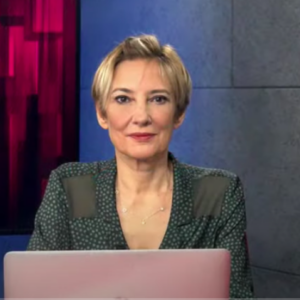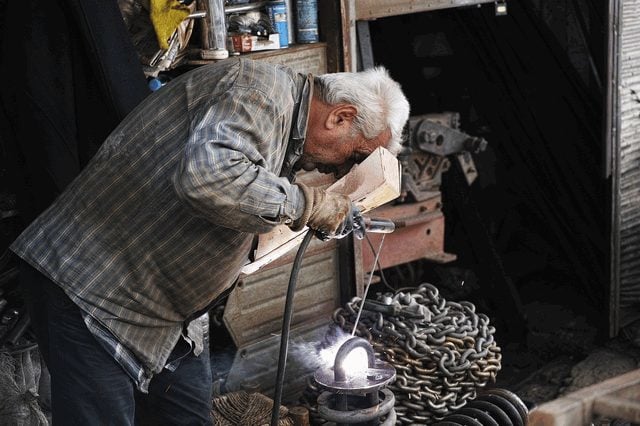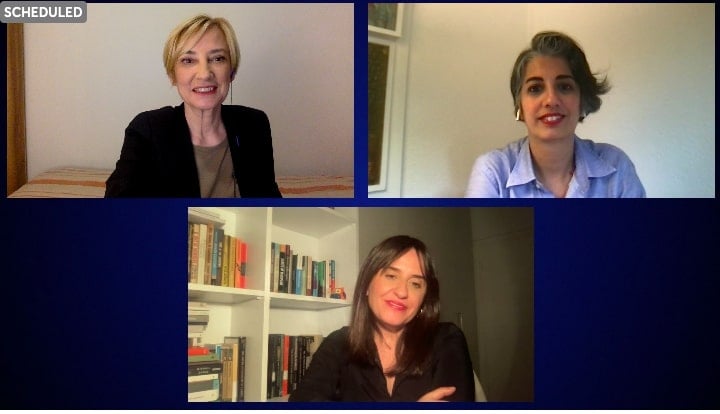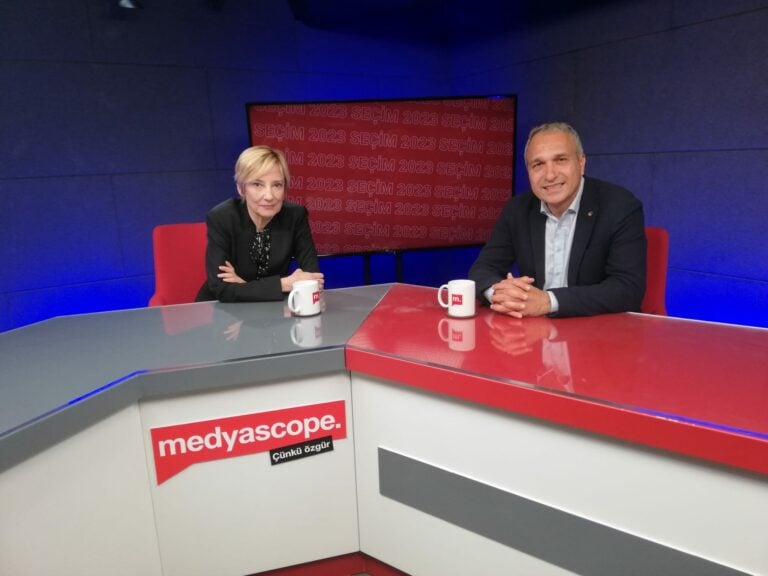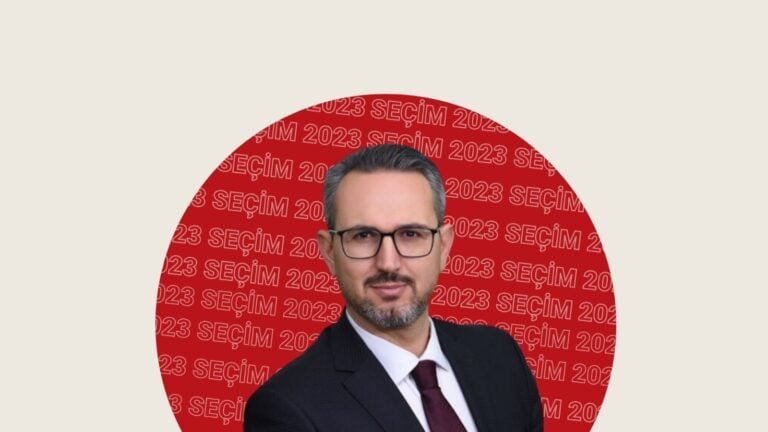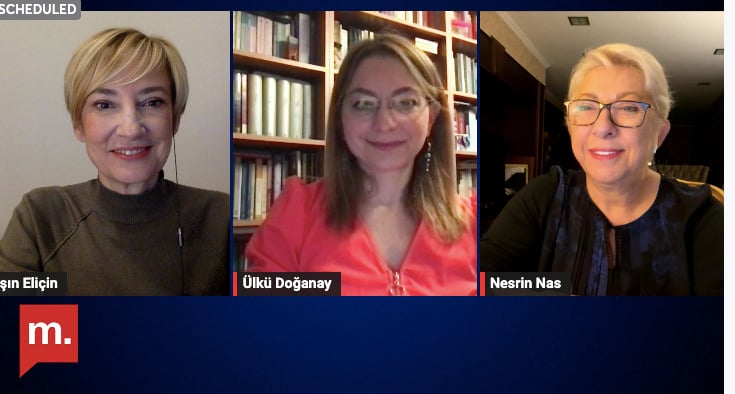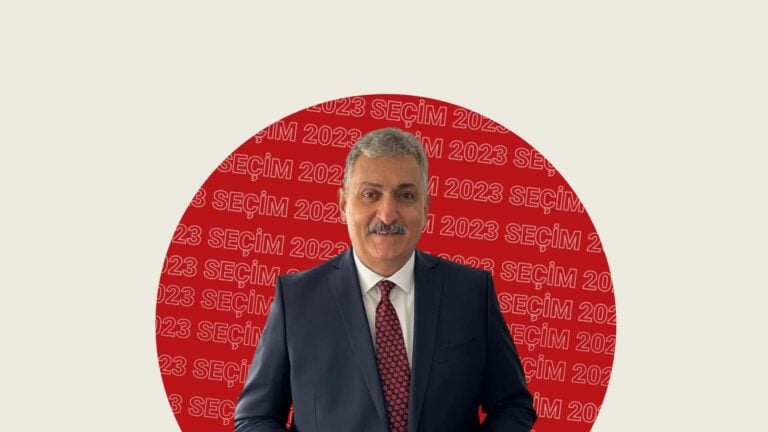Işın Eliçin:With many countries reeling from the COVID-19 pandemic, New Zealand is proving a model of recovery and is lifting part of its strict lockdown. Their strategy is a bold one and being a wealthy island country with a population of 5 million, it might be difficult to replicate it elsewhere. Still I believe there is a lot to learn from their experience and today I have two distinguished guests from New Zealand who have far reaching expertise on the subject: Helen Clark, a former Prime Minister of New Zealand and former head of the United Nations Development Programme, and Professor Michael Baker, epidemiologist and professor of Public Health at Otago University. Welcome. Prof. Baker, first I would like to ask you about New Zealand’s chosen path to fight off covid-19. Declared goal is to “eliminate” the disease; could you explain what that means in practice and have you achieve that already?
Prof. Michael Baker: Yes. It’s a great question. I mean around the world in response to this pandemic, we’ve seen some very different approaches. And New Zealand started on what’s called the mitigation approach and that’s really based on the usual pandemic plans that almost every country in the world has. That’s basically designed around influenza and with influenza you cannot eliminate the disease. It every year crosses borders around the globe. Influenza pandemics, of course, have been devastating in the past, particularly in 1918. So, it’s quite reasonable that western countries have all planned or all countries actually planned for influenza style pandemics. But it was quite clear fairly early on the Covid-19 pandemic was really looking more like SARS. In other words, that’s the disease where elimination is possible. You can contain it. And it went very well, containing and eliminating the SARS pandemic in 2002-2003. But unfortunately, it took countries a while to realize this. In China, they did the most remarkable thing and that was they actually contained and eliminated this pandemic in Wuhan and that’s already very well established. That was remarkable faith. And other Asian countries did similar things. In many ways, Taiwan was the best model for (…) like New Zealand because it was an island country. They have a lot of connections with China and very early on in January they recognized the problem and started to manage(?) their borders. It is interesting that the deputy leader is actually an epidemiologist and they have been through SARS. So, they knew all about containing this kind of infection. So, in early March some of us realized that this was actually a disease could be eliminated. So, we really advocated for New Zealand to do this; very rapid change in direction from influenza style pandemic response to one more like SARS.
Eliçin: Thank you, I will be asking more on that but now I’d like to ask Ms Helen Clark. Ms. Clark from Germany to Taiwan and Denmark to New Zealand, female leaders seem to be more successful at managing the coronavirus crisis? Yourself being the second female PM of your country, and the very first female administrator at UNDP, would you like to comment on this widely-shared observation?
Helen Clark: There’s been a lot of comment that on average the women leaders have been seen to be leading better responses. That of course is not to take away from the sterling efforts of a number of male leaders. Of course, the president of Korea has also lead a rather successful response overall including jumping on the second outbreak. But obviously in New Zealand we are very proud of the leadership that our prime minister has provided. And I am aware that she is one of this group of amazing women leaders from Angela Merkel through to the quite new prime minister of Denmark and Finland, prime minister of Iceland and so it goes on. Why is this, I guess, is the interesting question? And I think it is that in my opinion women are more likely to bring to leadership very strong interests in health. In our societies, regardless of how advanced or progressive, they are disproportionately women carry responsibility really for the health of children and the family. I think when a crisis like this loom, the first thing women are going to think is what about my mother, my dad, what about my grandmother, what about my children, what are the implications of this for the people of my country. So I think we’ve seen very human centred approaches and the willingness to reach out to the best science and information to saviour what could we do. Michael Baker has very correctly described the process in New Zealand where we quickly moved on from seeing it as like managing a flu pandemic to managing something much more like SARS. That was a critical move in getting us onto an elimination strategy and ending up, well, a very promising situation New Zealand is in today.
Eliçin: Prof. Baker, from a public health point of view, what makes a good leader? As a scientist, maybe you can give a different answer.
Baker: I think we have been very fortunate in political leadership in New Zealand. In many ways science has frustrated and public health is frustrated if we can’t work with good leaders. Because main definitions of public health talk about the organized efforts of society. So we can have what we think as a science-based approach but unless we have good leadership we can’t translate that into policy and practice. Fortunately, in New Zealand we did have a government that was very decisive and very open to listening to scientists. Another reform in New Zealand has been really the creation of this chief science advisors in government departments and also in Prime Minister’s department. And what I’ve observed was that they were ahead of the government agencies and the officials. They were also good at short-circuiting the bureaucracy. In the end, I was in daily contact with chief science advisors about how New Zealand needed to change its direction and that proved to be very effective.
Eliçin: Ms Clark, as of April 8th, as a group of women leaders, you have asked UNSC to take immediate action, declaring Covid-19 as a threat to global peace and security. Could you elaborate on your position for doing that and the response from UN Security Council?
Clark: I’ve been involved in two letters from senior leaders, to key decision-makers; the one you just mentioned and also, we could come back to the other one to G-20 leaders. There is a grouping of us who have been former senior women in global affairs. That’s a number of us have been at the UN and also others in the diplomatic services of their countries, like former secretary of state Madelaine Albright who also served as her country’s ambassador to UN. Our group has been extremely concerned at the lack of action by the UN Security Council. I think really, it’s quite shocking. When you think of 2014 and the Ebola epidemic focused in the three West African countries but of course with some people travelling and being picked up and you know the states and other places. This was seen as so serious that the Security Council passed a resolution -and their resolutions are binding on the member states of United Nations- declaring that Ebola was threat to global peace of and security and calling on the member states to mobilize whatever action and resources they could to end this threat. Now here we are, six years later, we have a disease which, yes is not as deadly as Ebola but hugely more widespread and causing death, distress and serious injury in countries around the world. And we have heard nothing from the UN Security Country. This is a sad commentary on today’s toxic geopolitics because when the issue has been raised at the Security Council, you have people wanting to get into a blame game: “you started this, I want to call the virus after you, you didn’t do this, you didn’t do that…” This is completely counter-productive. We face a crisis and a critical thing about this pandemic is, it isn’t just the very-very serious health issues it represents, it is causing a global economic and social crisis. And it’s not just the health response that needs a full mobilization of funding, we have countries whose economies are falling over; countries which are so heavily indebted that they can’t both service their debts and provide the basic support their people need during periods of lock-down. So, I think that all pressure from member states must continue to go on the countries at the Security Council to step up to their responsibilities; because to this date they have not. This is really, I think inhibiting the kind of globally coordinated urgent action that we need. The window is very short to avert the worse damage in the least developed and low income countries. If we miss that window we can anticipate a great deal of trauma in countries which unlike the G-7 ones -which have been impacted and struggled- don’t have basic health infrastructure to deal with it. So, the group I am associated with will continue to press on that and through other groups and leaders I am involved in, we’re making other appeals to G-20 leaders as well.
Eliçin: I’ll come back to G-20, but first let me ask Prof. Baker; New Zealand has implemented a four-level alert system. Could you explain it? Starting from tomorrow you will be going to level three; and what is going to happen? How effective the system is?
Baker: Yes. It is a good question. I think it is piece of good risk communication organized very rapidly and it has worked, I mean I think the public gets this. The thing was interesting, is that with pandemic influenza you ramp up your response as the epidemic gets worse in your country. But if you are pursuing an elimination approach, you throw everything at the start, because you really want to basically wipe out the virus and so, that’s quite a change in thinking. And so New Zealand went straight into this quite intense lock-down when it had only a little over a hundred cases and hadn’t had any deaths. That’s very different from what countries are doing overseas. The public, by this stage, they were looking the devastation in northern Italy and increasing in Europe and I think they were sort of starting to appreciate this was a very serious infection. I think at that point there was more public support for this. And actually, the business community, business leaders also saw this as a real threat. So, they were some of the big drivers advocating for very intense response. So we’ve now had four and half weeks at level four which essentially is home quarantine: You stay at home unless you have a reason to leave like essential work. The next step, level three, is not much freer, you still stay at home but it’s loosening things up for the work force, to get the economy going, so people in construction work force and people in restaurant business and so on who can deliver food with minimum contact. And also, schools and early childhood centers will also open if people cannot keep their children at home and that could be particularly the children of essential workers and health workers.
Medyascope'un haftalık e-bülteni
Andaç'a abone olun
Editörlerimizin derlediği öngörüler, analizler, Türkiye’yi ve dünyayı şekillendiren haberler, Medyascope’un e-bülteni Andaç‘la her çarşamba mail kutunuzda.
Eliçin: Ms. Clark, I want to go back to G-20. You have also been working with other global leaders including former British PM Gordon Brown –and I have seen some Turkish academicians and diplomats at the list- to pressure G-20 and on last Friday G-20 has called on countries, international organizations, private sector etc. dollar to contribute to its funding efforts setting 8-billion-dollar goal. Is it good enough? Is it the one you’ve asked for?
Clark: That is one of many issues that were … in the appeal that dozens of former leaders have made to G-20 leaders. The 8-billion essentially refers to recommendation for what’s called global epidemic preparedness board or some such name which was set up post the Ebola outbreak in 2014 by the World Health Organization (WHO) and by the World Bank. That board specifically recommended an investment of about the 8-billion figure to go into the development of vaccines, therapeutics, diagnostics and of course most urgent WHO response. So the pledging conference on that is not a G-20 initiative. It’s been announced by the President of European Commission; a number of key major European countries are backing there and also a number of the Gulf States who are very generous in humanitarian emergencies. So that is one asked from our letter which has got some attraction. But the reality is, it is the petty cash of what needs to be done. Because as I said, when you got a full-blown economic crisis, when economies stall, when you have tourism as ten percent of global gross domestic product (GDP) and it just stops, what are the Caribbean Islands do? What does a country like Kenya with its very vibrant tourism sector do? What does the Indian Ocean nations do, like Maldives, Seychelles who live on tourism do? To say nothing of the South Pacific in our region. But as well, there is a critical importance for countries to repurpose their public spending to meet the threat of CoVid-19 here on. If you are a heavily indebted country -and it’s not far-fetched to say that some countries will be spending a very significant proportion of their budgets on debt-servicing- you need that debt wait. These 44 billion dollars of debt due and the creditors from sub-Saharan Africa this year. That debt should be waived so that that money can be repurposed into the fight against CoVid-19. Because what we know, if a country bungles the public health response to Covid-19 then the economic problems it faces will be deeper and they will run for longer. So our request to the G-20 leaders was to step up, as they did in earlier generation of them in 2009 in the wake of global financial crisis mobilized by Gordon Brown who also helped bring out our letter together. They mobilized trillion dollars in meeting the dreadful situation global financial crisis. I had enlisted we have everything that was in our letter. You really looking for two-trillion-dollar response now. You want the debt waivers. You want another 500-600 million in special drawing rights from the IMF. You need new lines of credit from the World Bank and the Development Bank. It’s huge but we haven’t seen in our life-times, or in my father’s life time and he’s 88, a total collapse of the world economy in this way. And we have it, I think, in the power of nations collectively to stop what would be a severe recession becoming a global depression. But only if leaders step up with determination to stop that happening.
Eliçin: A quick follow up on what you said; it is looking more and more as a world of me-first leaders -or it is sometimes what we see from here. But to fight off Covid-19, rather multilateralism, internationalism is needed. How do you see it, will the me-first approach take over?
Clark: We know that the me-first approach is certainly the one that the President Trump has (…). I think (…) its course is when such administrations work out that actually they can’t deal with this on their own. They need everybody to step up. New Zealand is a very internationally minded country, we are on the way to eliminating Covid-19 here. But we know that unless the rest of the world act, we can sit here but we can’t get on and prosper and support our people the way we want to, if others aren’t dealing with Covid-19 decisively. Now the US is a far bigger case, but it has land borders, it has people who want to travel there, wants trade, wants visitors. In the end, it is in US’ interest for there to be proper international response. I just hope that at some point the advice system gets through to the White House to emphasize that even as greater power as the United States can’t do it alone. We need each other. We need to hang together on this. There is an old saying in English: If you do not hang together, you shall hang separately. So better to hang together for good results.
Eliçin: Prof. Baker, looking at the different approaches taken by different countries around the globe…Two questions: Can a country have its own way as opposed to hanging together and if countries keep this way, everybody taking a different approach– how long do you expect this pandemic will keep impacting daily life, keep taking lives prematurely?
Baker: There are very good questions here. I think the core idea is we have to, science has to share its approaches globally. There were very good signs early on in the pandemic. I think China did sequence to virus and shared that information globally and that gave many scientists around the world a real hit start thinking about testing, vaccines and so on. But there was a point when I think for some reason the risk assessment really failed and unfortunately, though I work with World Health Organization –I think it’s a great institution and we desperately need that kind of structure- I think it didn’t help in certain point in doing the kind of risk assessment we needed. And similarly, the institutions in many western countries that New Zealand always looks to, like the CDC in the United States, Public Health England, the laboratory and the European Disease Control, they did not produce a robust assessment and underestimated this pandemic and also, they didn’t I think provide very clear recommendations. Also, the World Health organization was saying it was inappropriate to restrict travel. But that was the point when actually very carefully designed travel restrictions would have made a huge difference. And there was the opportunity to contain and possibly eliminate this virus in a global level. It would have been difficult but it was technically possible. And then that window passed. And then I think it was countries in a way doing their own assessments and I think that’s when New Zealand, Australia were looking at better models of practice from Asia and the west was not giving us good examples. So, there is an element of almost exceptionalism and almost arrogance that came out with this virus. We could have learned more from Asia and acted better with it.
Eliçin: As a follow up, could you comment on this concept of herd immunity? Countries do not declare that they are doing it because scientists are against it but we suspect that they might be doing it without telling it to the public.
Baker: Well, firstly I always think, if you think you about policy at international level in response to a pandemic, I think you always have to think about the counterfactual: What are your options? For some countries, particularly those that can manage their borders you do have a choice about elimination or I guess accepting that virus is going to wash over you in some way. So the first choice, if you have a choice, at a country level, is can you live with the virus or will you invest in excluding it? A most extreme case at Pacific Islands who lifted a …? if you like very quickly and basically excluded the virus entirely because they knew from past experience that will be devastating, they didn’t have the ventilators, they didn’t have resources. So that’s very rational choice for places like Samoa and Tonga. Then the next choice is, for countries depending on tourism and trade, Australia, New Zealand, Taiwan is managing your borders and elimination is really quite feasible. But if you are in the middle of Europe or the Americas, you have the resources to manage the pandemic and in a way, you have the spectrum of responses from full suppression where you do a series of basically lock-downs, and you’ll be doing alternating lock-downs, coming out of lock down for months may be a year or more until you get some vaccine. At the other end of the spectrum is to do a version of mitigation approach. If you like; take your foot off the brake for the pandemic in various ways and you accept a degree of infection. To make that work, you really have to take your vulnerable groups and securely cluster them or gather safe havens and make sure they really didn’t get infected. It could be done and done very well it is a very rational approach. Sweden is probably the only country nearly admitting to doing that but I think some other countries are also doing it to some extent. As Swedish epidemiologists say -I do know some of them quite well and I have a lot of respect for them, it’s not an option I would advocate myself- but they do say the test will be in a year’s time when we compare the damage done by the pandemic, not just to those who’re infected but also to the health system and those who missed that health care because of the shot downs and also the economic harm that it did particularly to more deprived groups in our countries. When we do the –if you like- the final calculus we think we’ll be better off with the choice we’ve made compared with those countries that used a very conservative suppression approach. And I think they are right, I think it will be very hard to know about what end you want to be on that spectrum. One other thing I should say is that, no one really knows what immunity for this disease means. So, if you say that we are going to tolerate a high level of infection and we are going for herd immunity, we still don’t know if that’s achievable. We don’t know how long immunity lasts. So, this is still a very speculative approach.
Eliçin: Ms. Clark, discussions about the world that will emerge from the coronavirus pandemic have started. Some commentators are wondering whether the crisis offers the opportunity to set the world on a more sustainable and equal path. What is your projection?
Clark: In an ideal world leaders should take lessons from this and so would societies and they would reflect on the fact that the way that we’re living increases the possibility of what we call zoonotic diseases, crossing species from animals to human. They’d reflect on the fact that a crisis like this exposes all the fractures in our society, it exacerbates the vulnerabilities of those who are already the most vulnerable. They’d reflect on the fact that actually air quality improved because there were fewer cause botching greenhouse gasses on roads and less industry. They would reflect on some of those things and say could we built back better from this. I wonder though whether we have the quality of leadership in the world today to see the changes may, which could be made at a moment like this. I suspect that the economic damage is going to be so deep, that there will be a tendency to try to rush back to business as usual. We’ll end up prank up the economy, get the large tourism flows, going again in a sense the hell with the carbon foot print. So, it may be a moment that is lost unless there is significant citizen pressure which says look we could do things differently arising from this. If I could just comment on what Michael said; I’d been the leader of New Zealand for nine years which was a long time and I obviously look at the way leaders are handling this around the world and I handled it here, I have to say that in our country there would have been absolutely no solid option what so ever for a government to let the disease in a sense take its course as we’ve seen in some other countries and to a significant degree in Sweden. I think that we would have had a very-very severe societal reaction. What really concerns me is the plight of people in the residential facilities for older and for frail people and if you just go for a mitigation approach the reality is you can’t just lock those people away. You’d have to lock away everybody who ever interacted with them. What we have seen with the death toll in homes for the elderly and frail, I find just so shocking. I can only be glad my own elderly father was in not a home. It is extremely worrying. So, I think when we reflect on this crisis and how it’s been managed we also need some reflections on the ethics and the morality that offered. I can only be grateful that I am in New Zealand where the approach has been very human centered, it is a people-first approach. Yes, it is doing economic damage to do what we are doing, but hey, we have got a chance of elimination. And I believe we will come out of this and recover faster than those who didn’t start on the elimination course and they have had to throw their economies into very severe lock-downs in any case.
Eliçin: Last round of questions. Prof. Baker, I think in one of your interviews, you say “at the recovery period could be used to plan more sustainable, safer and equitable society we want to emerge from this global catastrophe”. Could you elaborate?
Baker: I think that’s the theme that has come up already. A lot of people are talking about this idea of a great reset, that this is a moment to reflect on doing things really differently. That doesn’t happen very often. I guess after big events people talk to … building back better and we hope that the pressure to get the economy to get to going again means that we don’t lose that opportunity. I know among my colleagues this is a major discussion point at the moment, about what we can learn. From I guess the narrow infectious disease area, we are all saying that this is a chance to look at our public health institutions at every level, local, national and international, say how can they serve us better and we couldn’t have more dramatic example as success and failure, I think even at this point. So, I hope there will be a very deep assessment of how to do it better and we’ll learn from this. Unfortunately, we do have a history of not learning very much from pandemics. Although I should say the New Zealand department of health came out of a fear of plague globally. And we got a new, much better, health act in 1920 after the 1918 flu pandemic. I think our health institutions have been systematically wound down and fragmented over 20 past years in New Zealand and this obviously, a chance to rebuilt that after this. I think they will look very different and much better. So that’s within that scope. More broadly, this is I think in macrocosm a test whether if the scientists say there is a very severe threat to human existence on the horizon as in climate change, environmental degradation and it is coming at us very fast with the peak is still may be 10 may be 20 years away, can we respond that kind of threat. This is very much like a pandemic. Pandemics coming at you faster but you still have to respond. I hope people will learn from that, from this episode and say “let’s listen to the scientists, let’s all have informed policy making, let’s tackle climate change as though there is a pandemic threat”. It is coming at us, it is just the timeline a little bit longer but it is going to be far more devastating then Covid-19. So that I think will be a major realignment of how our governments think and taking a less short-termism and thinking far more profoundly about what governments need to do to manage public health well-being and create the sustainable societies that we know we need.
Eliçin: Helen Clark, I sensed some pessimism in your earlier remarks. if we cannot rely on our governments, and even on international institutions what we can we do as individuals in our societies and as global citizens?
Clark: I think as individuals in our societies we should be pressing our governments for these transformative approaches both Michael Baker and I are talking about. This is a moment in time where we could resolve to build back better in more sustainable ways and living in more harmony with nature, fairer, more just, better services for all. I think also to be very very practical, when countries look at their resilience to adverse events, let’s take that beyond the adverse events of severe climate events and seismic eruptions Turkey and New Zealand both experience with earthquakes and so on, we now have to build into the resilience planning and preparedness planning with much more acute awareness of these kind of disease outbreaks. I am not sure, why really, we would be surprised by Covid-19. This is the fifth such zoonotic disease to be declared a public health emergency of international concern in the last 17 years. SARS was in 2003, swine flu was in 2009, Ebola in 2014 and 2019, latter in Democratic Republic of Congo. And here we are. So that’s five in 17 years. On average, every three to four or five years we are going to have one of these terrible scares. And if we don’t get better at managing it we are going to have huge disruption within short intervals to our societies, our economies, health wellbeing, human security of our people. So, I would call quite a profound reflection by our leaders on how we ready ourselves for these kinds of adverse events that are going to happen and we need to be ready. My last call would be that every country has to cooperate fully and early and … It is not acceptable to have a delay in notifying the appearance of a new virus or disease. We are all in this together. In a very heavily interconnected world, one affects one soon affects another. So we really need to reinforce global cooperation to stop appalling diseases like this getting attraction round our world.
Eliçin: Helen Clark, Prof. Michael Baker thank you very much.


